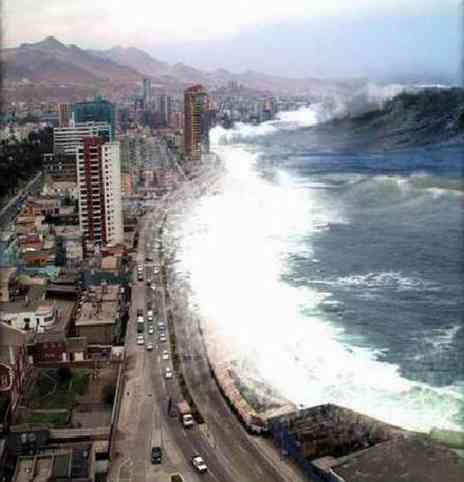
By Jeff Mason
BRUSSELS (Reuters) - Climate experts were trying to agree on Friday on the bleakest U.N. warning yet about the impacts of global warming, foreseeing hunger and water shortages in Africa and Asia, extinctions of species and rising oceans.
Delegates from more than 100 nations in the U.N. climate panel were locked in overnight talks in Brussels, seeking to overcome differences about a 21-page summary for policymakers to allow planned publication at 0800 GMT.
The talks, which began on Monday, are to review and approve a report warning that climate change could lead to lower crop yields in Africa, a thaw of Himalayan glaciers and a rise in ocean levels that could last for centuries.
It will say climate change, blamed mainly on human emissions of greenhouse gases from burning fossil fuels, is no longer a vague, distant threat for the planet.
"The whole of climate change is something actually here and now rather than something for the future," Neil Adger, a British lead author of the report, said in a break from the late-night talks.
He said the Intergovernmental Panel on Climate Change (IPCC) would make "a much stronger statement" about the regional impacts of climate change than in its previous report in 2001.
U.N. officials, who had hoped for the talks to be completed on Thursday, predicted that they might end around 2 a.m. (0000 GMT) on Friday.
EXTINCTIONS
Negotiators slightly watered down threats of extinctions.
"Approximately 20-30 percent of plant and animal species assessed so far are likely to be at increased risk of extinction if increases in global average temperature exceed 1.5-2.5 degrees Celsius (2.7-4.5 Fahrenheit)," an agreed text said.
The draft had said that 20-30 percent of all species would be at "high risk" of extinction with those temperature rises.
"There are very, very many (outstanding issues), and many of them are small," said Wolfgang Cramer, a delegate from Germany.
The report, which is approved by governments as well as scientists, will set the tone for policy making in coming years, including the effort to extend the U.N.'s Kyoto Protocol beyond 2012.
Kyoto binds 35 rich nations to cut greenhouse gas emissions but has been undercut by a 2001 pullout by the United States, the top emitter. President George W. Bush says Kyoto would cost U.S. jobs and wrongly excludes developing nations such as China.
Friday's report will be the second by the IPCC this year -- in February, the first said it was more than 90 percent probable that mankind was to blame for most global warming since 1950.
Friday's report makes clear that developing nations are likely to suffer most even though they have done little to burn fossil fuels since the Industrial Revolution.
Temperate countries nearer the poles, such as Canada, Russia or Nordic nations, may benefit for a while from factors including higher crop growth.
For Africa "reductions in the area suitable for agriculture, and in length of growing seasons and yield potential, are likely to lead to increased risk of hunger," the draft says.
And rising seas could threaten low-lying Pacific islands and large tracts of countries such as Bangladesh.
There is a theoretical chance that the IPCC could break up without agreement, something that has happened only once, in Geneva in 1995. The IPCC reconvened a few weeks later in Montreal and successfully signed off on the report
No comments:
Post a Comment